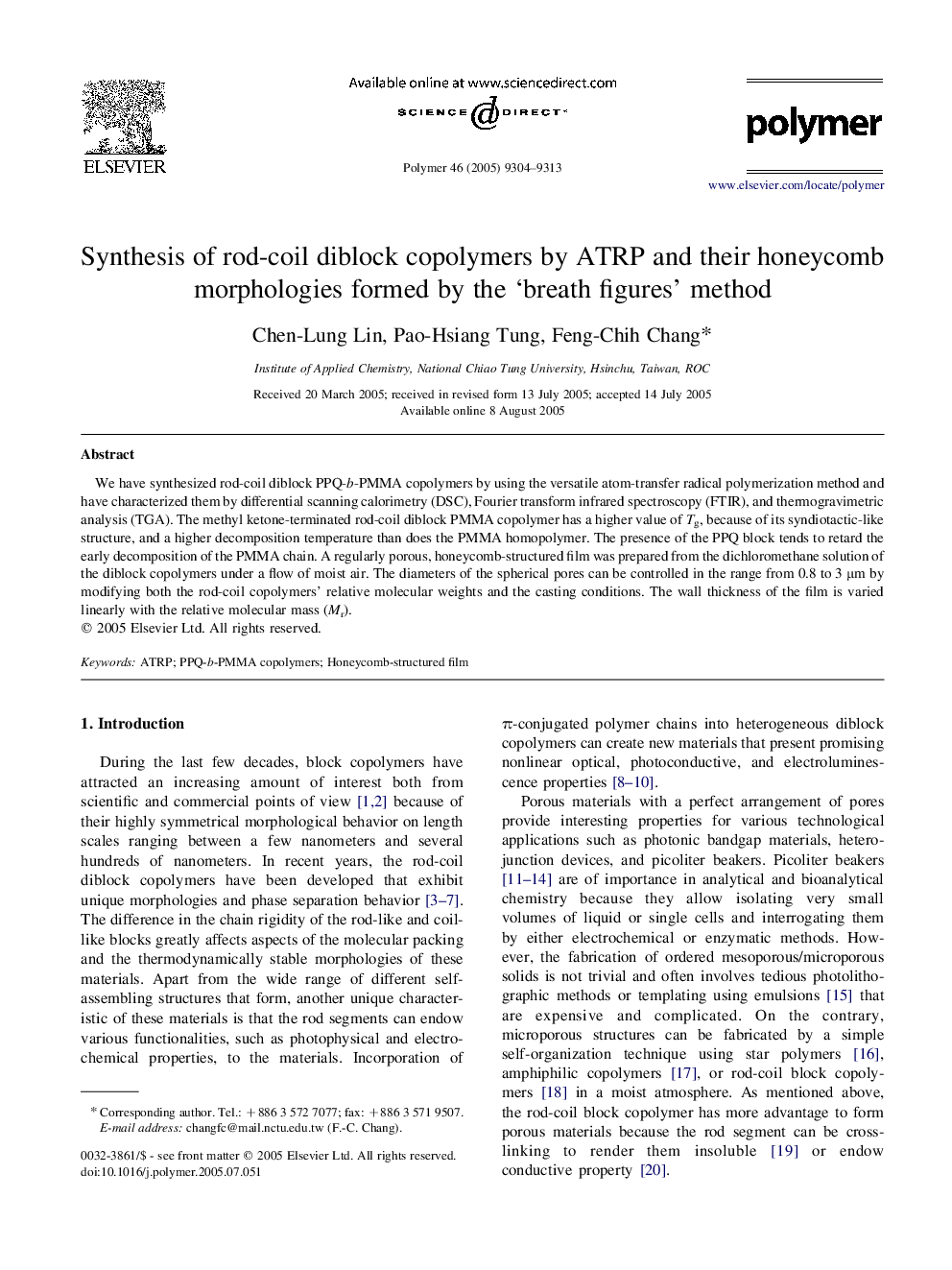| Article ID | Journal | Published Year | Pages | File Type |
|---|---|---|---|---|
| 5190434 | Polymer | 2005 | 10 Pages |
Abstract
We have synthesized rod-coil diblock PPQ-b-PMMA copolymers by using the versatile atom-transfer radical polymerization method and have characterized them by differential scanning calorimetry (DSC), Fourier transform infrared spectroscopy (FTIR), and thermogravimetric analysis (TGA). The methyl ketone-terminated rod-coil diblock PMMA copolymer has a higher value of Tg, because of its syndiotactic-like structure, and a higher decomposition temperature than does the PMMA homopolymer. The presence of the PPQ block tends to retard the early decomposition of the PMMA chain. A regularly porous, honeycomb-structured film was prepared from the dichloromethane solution of the diblock copolymers under a flow of moist air. The diameters of the spherical pores can be controlled in the range from 0.8 to 3 μm by modifying both the rod-coil copolymers' relative molecular weights and the casting conditions. The wall thickness of the film is varied linearly with the relative molecular mass (Mr).
Keywords
Related Topics
Physical Sciences and Engineering
Chemistry
Organic Chemistry
Authors
Chen-Lung Lin, Pao-Hsiang Tung, Feng-Chih Chang,
